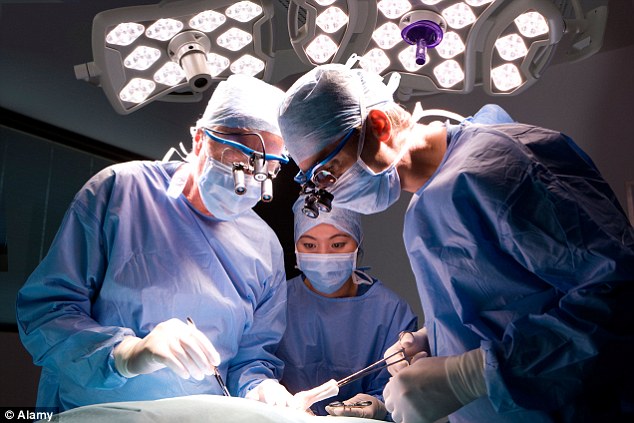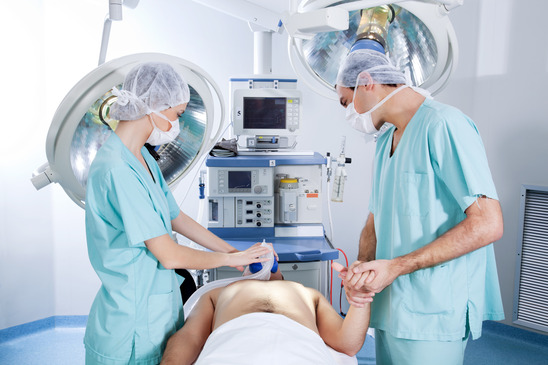Cardiac Surgeon: Education and Career Information
There are a number of names attached to the cardiac surgeon. They are also known as a cardiothoracic or cardiovascular surgeon, or heart surgeon. This is a highly specialized position that takes years of education and experience, but is very rewarding if your ultimate goal is doing work that will save lives. These surgeons work for hospitals, but can also work for non-profit agencies or as a contractor, which will increase the typical yearly salary. Cardiac surgeons can work in general or specialized surgery, which includes pediatrics and general thoracic surgery. This is a very challenging position, but is important to the field.
What does a cardiac surgeon do?
Although the word “cardiac” typically equates with work on the heart, a cardiac surgeon can operate on a number of areas in the cardiac cavity. This means anywhere there are issues in the heart and the surrounding areas, this surgeon will be able to perform operations that can assist in fixing the problem. These areas are: the heart, chest cavity, lungs, blood vessels, and esophagus. They specialize in diagnosing cardiac problems, the surgical treatment and the post-management of their patients who have lung and heart diseases. They can perform bypass surgery, treat aneurysms in the aorta, perform cardiac surgeries to repair the heart or valve replacements, and a wide variety of issues related to the cardiac area. A cardiac surgeon is a specialist in their field, handling very complex issues.
How much do cardiac surgeons earn?
This is a very lucrative career path. The median salary for a cardiac surgeon is around $412,000, but ranges from $330,000 to as high as $600,000. The location, experience, education and specialty play a huge factor in the salary. If a surgeon has both an M.D. and a Ph.D., their salary will be significantly higher than a surgeon who only holds a medical degree. This is one of the highest paid professions in the medical field.
What types of skills are needed to be successful in this field?
Surgeons are highly trained in their field and have to possess a number of skills to be successful. Some of those skills include:
•Attention-to-Detail: A surgeon must be able to see and hear everything during surgery to make sure the operation is successful. When working on parts of the cardiac cavity, one wrong could result in severe injury or even death.
•Crisis management: During surgery, there are a number of situations that could take place. Surgeons must be able to keep a level head and effectively deal with any crisis that may arise.
•Communication skills: Surgeons must be able to successfully communicate with the patient, their family, other doctors and medical staff at any given time. They must be able to give directives in a clear and concise way.
•Research and Diagnostic skills: Doing the research on each condition is imperative for surgeons to know and understand what is going on with their patient. They must be able to find new treatments and properly diagnose the condition through thorough research.
•Fine motor skills: A surgeon must use precision when operating on a patient. They must have complete control of their hands, be able to clearly see and be able to carry out their duties without flaw. They must have good hand/eye coordination and be able to properly use each instrument necessary for the operation.
Internship requirements
Clinical residency or internships start in the third year of the medical program. While there may be some internship requirements in the pre-med program to get you acclimated to the environment, the major internships begin once you have entered medical school to get practical knowledge and hands-on experience. These internships last throughout the medical program, usually for about seven years. In this profession, ongoing continuing medical education requirements are a necessity, and are required to maintain the license to practice medicine.
Education requirements
Although a very lucrative field, the training and education for this career is lengthy. It is one of the most detailed and extensive programs you can pursue. Students must have the basic education of a bachelor’s degree prior to entering medical school. There are schools that offer pre-med programs that have a combination of courses to prepare students for medical school. Coursework in a pre-med program includes:
•Biology with labs
•Inorganic chemistry with labs
•Organic chemistry with labs
•Math, including calculus
•Physics with labs
•English and writing
In the junior year of the bachelor’s degree program, most students sit for the MCAT exam that will test your knowledge on the concepts you have learned to prepare you for medical school. Once you have entered medical school, the first two years are concentrated on learning the sciences and introduction to the world of clinical medicine. The third year, you will be exposed to a variety of clinical disciplines to see how they all work together and give you a general idea of what you will be facing. The senior year of medical school consists of electives and additional clinical exposure. This is when the residency requirements start to take shape. The surgical program in medical school is typically a seven-year program, with two years of clinical residency after the four years of medical school preparation.
Every surgical program follows the rules and regulations outlined by the Accreditation Council for Graduate Medical Education (ACGME). This is a rigorous process, with general surgery requirements, and thoracic surgery requirements to be met. A general surgical training program consists of the following:
Part I: First two years – Prerequisite Clinical Training in Cardiothoracic Surgery
Part II: Next four years will include Clinical Training in Cardiothoracic Surgery.
Part III: Additional two or three years for an additional degree and specialization, including additional clinical training.
Clinical rotations include:
•Adult cardiac surgery
•Cardiac anesthesia
•Vascular surgery
•Trauma surgery
•Emergency medicine
•Thoracic surgery
•General surgery
•Pediatric surgery
As the program advances, additional rotations include:
•Echocardiography
•Interventional radiology
•Electrophysiology
Once the residency portion is completed, applicants must become a registered physician by taking the licensing exam. Once you are a certified physician, you must be certified by the American Board of Thoracic Surgery. There are a number of requirements involved:
There are four ways to achieve certification:
•Completion of a full residency in General Surgery approved by ACGME, followed by completion of an ACGME-approved Thoracic Surgery residency.
•Successful completion of a full 5-year residency in General Surgery, Cardiac Surgery or Vascular Surgery approved by the Royal College of Physicians and Surgeons of Canada, followed by the successful completion of a Thoracic Surgery residency approved by ACGME.
•Completion of a six-year integrated Thoracic Surgery residency that is developed using the guidelines approved by the ACGME and established by the TSDA.
•Completion of a Vascular Surgery residency approved by ACGME.
Additional requirements for certification:
•An ethical standing acceptable to the Board.
•Satisfactory performance on the exams administered by the American Board of Thoracic Surgery.
•A current license to practice medicine, valid at the time of the application for the exam.






